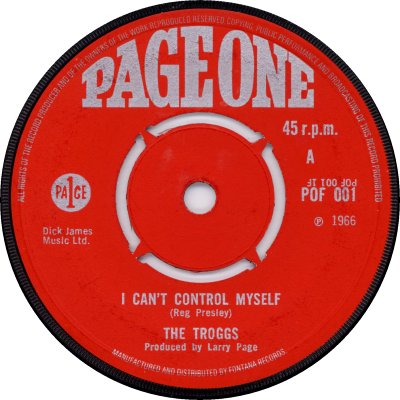
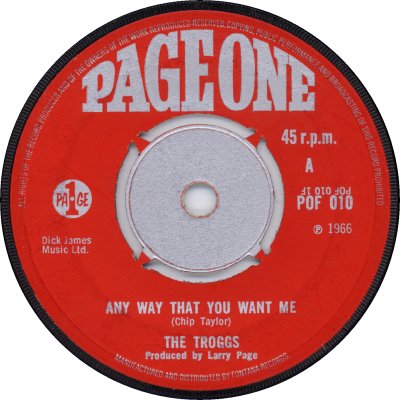
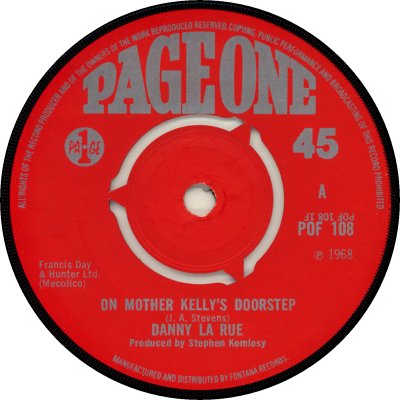
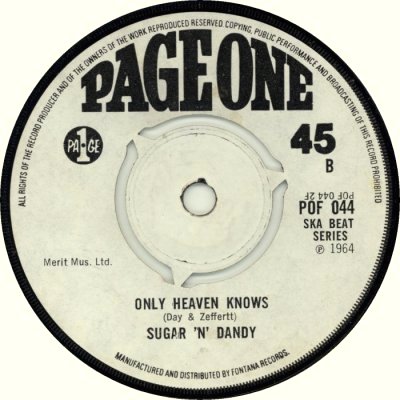
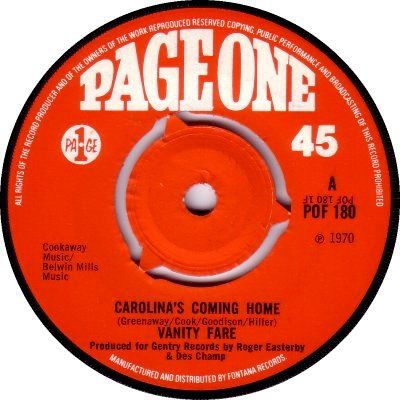
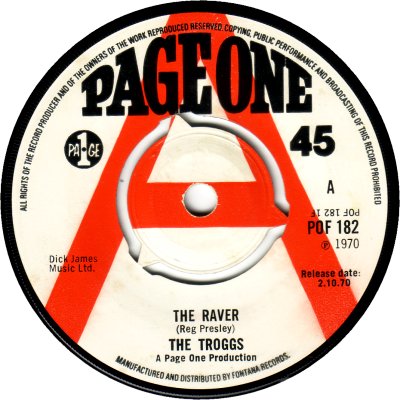
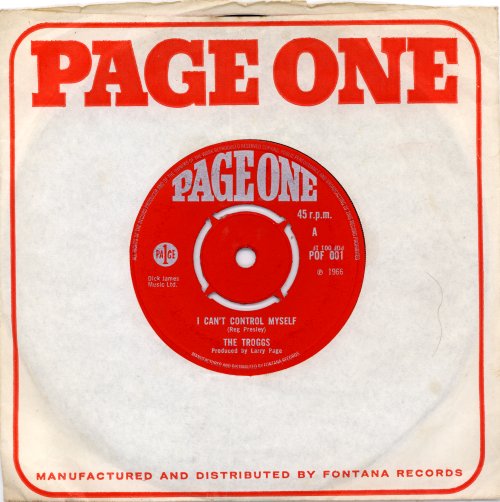
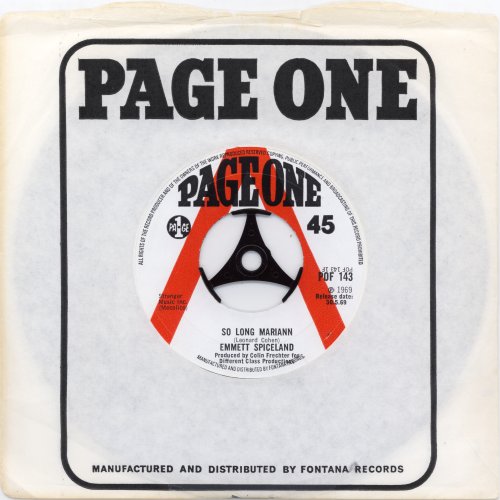
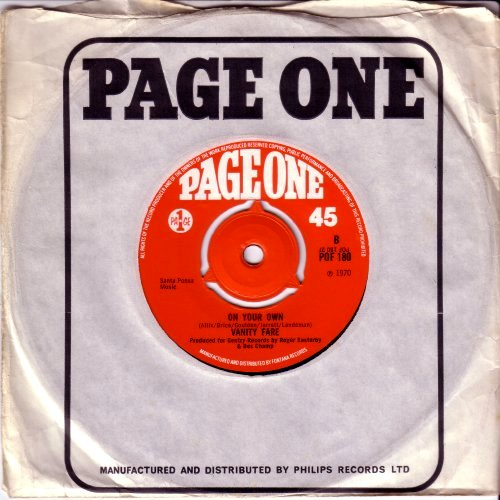
Mainly a Sixties label, though it survived into the early '70s. Page One was formed as a 50:50 venture by manager / producer Larry Page and the Dick James Organisation in 1966; its first single, 'I Can't Control Myself' by The Troggs (POF-001; 9/66), soared to No.2 in the Singles Chart, which was an encouraging start. After the company had been in operation for nearly three years there came a change in its ownership: 'Record Retailer' of the 16th of July 1969 reported that Page had sold his 50% share to James, effective from the 31st of that month, and was setting up his own label, Penny Farthing (q.v.). James was thus left in sole charge of Page One. A shake-up soon took place: the following week 'RR' reported that James's son Stephen was to administer the label, in addition to his duties at DJM, and that Dennis Berger was to be in charge of productions. The pressing and distribution deal with Philips was renewed to cover another three years ('RR', 30th August 1969), suggesting that the future was assured. However, in November of the following year came the news that no more product was going to be released on Page One, and that in future all of the Dick James Organisation's acts would be on DJM "in order to streamline the record operation" ('RR', 7th November 1970). As far as the '70s are concerned, that was the end for Page One; there were plans for DJM to reintroduce it as a mid-price album label, but the plans were changed ('RR', 18th May 1974) and the DJSLM-2000 series was introduced instead. It did however make a comeback in the early '80s, under Larry Page.
Page One's output was eclectic, and included Pop singles, Easy Listening albums, Irish Ceilidh music (mainly courtesy of Malachi Doris and his Band), Irish Folk (with the now-renowned Emmet Spiceland), and spaced-out Jug Band stuff from America (in the shape of Dr. West's Medicine Show & Junk Band) - a peculiar mixture, but often interesting. It enjoyed a succession of hits with the Troggs from 1966-68; from 1968-69 Vanity Fare provided its chart placings, and Deep Feeling added a final Top 40 entry in 1970 with 'Do You Love Me' (POF-165). The label design remained basically the same throughout, but there were minor changes: the logo started out at 9 o'clock (1) and moved to 10 o'clock (3) in March 1967, with the release of POF-018 - later pressings of POF-017 also had the logo at 10 o'clock. The printing, which was silver to begin with, changed to white for the label name and logo with black for the credits in early 1969 (5). There was a short-lived 'Ska Beat' series from 1967 which ran to just two issues and had white labels (6), and in the same year the five singles from POF-012 to POF-016 were pressed with silver-coloured centres (2). Numbering was in the POF-000s; pressing and distribution were by Philips / Fontana / Phonodisc. As was the case with that group, singles were frequently dinked at the factory and came with large spindle holes and 'spider' inserts (8). Towards the end of Page One's life the manufacture and distribution credit on the company sleeves changed from Fontana (8) to Philips (9); the Fontana name on the labels remained unchanged. Page went on to start Page International, Nepentha and later Rampage (q.v. all) in addition to Penny Farthing; as stated above, he also revived Page One in the '80s. Dick James probably just about outdid his erstwhile partner in terms of sales with his subsequent DJM and Jam labels (q.v. both), thanks to Elton John's presence on the former. The discography below only covers the 1970s.
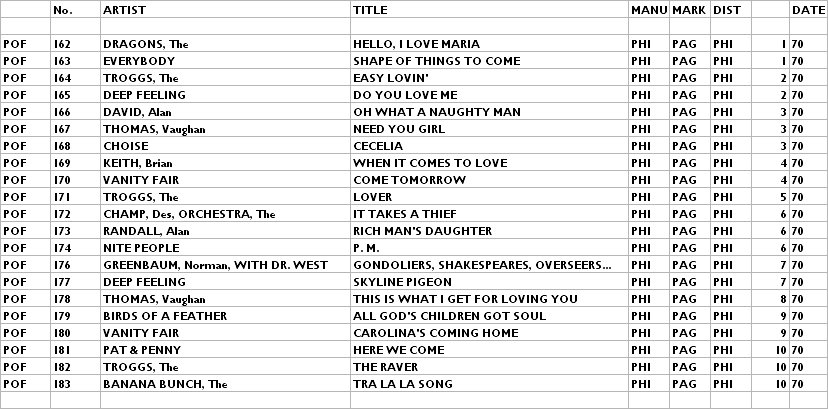


Copyright 2006 Robert Lyons.

